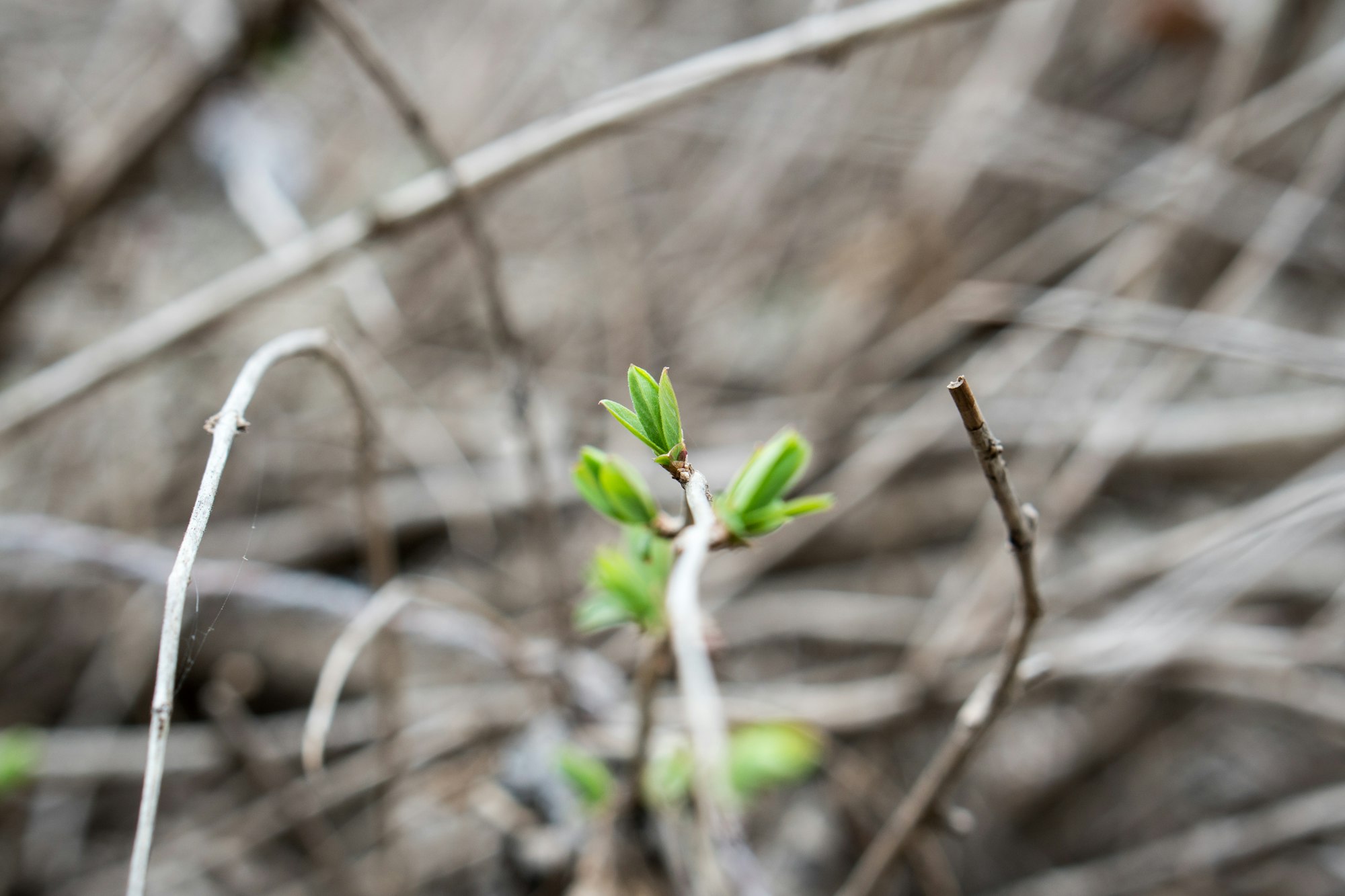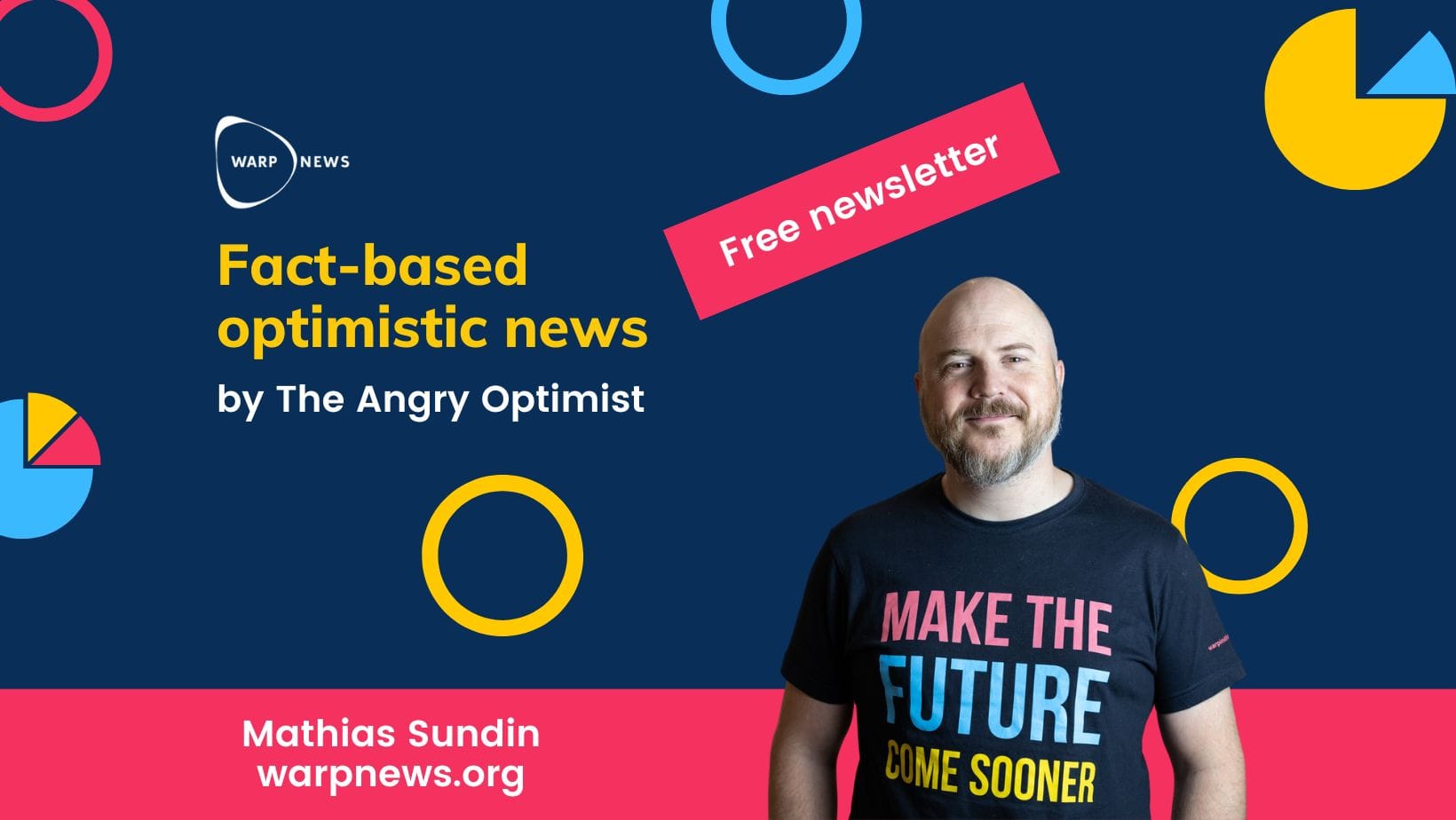
Share this story!
This newsletter is sent out to over 15,000 people every week. Subscribe here.
🎥 Here's to the optimists - view the launch of our video ad
A few weeks ago I asked for nominations of optimists to our homage to the best ad ever, Apple's The Crazy Ones.
A lot of nominations have come in - thank you! - and on March 11 we will premiere the ad in a live-streamed event.
We will of course show the video, but also tell you briefly about every person who is in it. You are very much welcome to join us.
March 11, 12.30 pm Eastern, 9.30 am Pacific, 18.30 Central European Time.
Subscribe to our YouTube channel to get a notification. You can also watch it on our Facebook page.
🙌 The Warp Institute Foundation is recruiting volunteers!
Do you want to help make the future come sooner by helping to spread fact-based optimistic news around the world?
Read more and apply by filling out this form.
Mathias Sundin
CEO of Warp News
Chairman of Warp Institute
Fact-based optimistic news of the week
👕 Used cotton clothing can be turned into nylon or ethanol.
By adding sulfuric acid correctly, it is possible to make new clothes or fuel from old cotton textiles that cannot be reused.
🐢 Mayonnaise rescues turtles that have ended up in oil spills.
Mayonnaise dissolves tar that is stuck in the throat of sea turtles and nourishes them until they can eat their normal food again.
🇿🇲 Water project blunt effects of climate change in Zambia.
The SCRiKA Projects objective is to strengthen the adaptive capacity of rural communities to better respond to current climate variability and long-term consequences of climate change in the Kafue sub-basin in Zambia.
🔭 The Hubble Telescope could help save the world's largest fish.
The Hubble Space Telescope has a special software for mapping and parsing out the stars. Now, this technology might help scientists save the worlds largest fish.
🔭 New technology provides the opportunity to take pictures of Earth-like planets in other solar systems.
A diamond chronograph uses infrared light to take pictures of planets in the habitable zone.
🔋 Hydrogen-powered battery provides environmentally-friendly storage of energy from solar cells.
A refrigerator-sized device that can both create hydrogen through electrolysis and store it in a fuel cell can act as a battery for solar energy.
📸 A revolution in your next smartphone.
Plastic or glass lenses in smartphone cameras are soon a thing of the past. They will soon be replaced by nanoelements, which save space and provide (even) better images
🌱 Simple super fast growing plant can help with both food scarcity and climate change.
Scientists are trying to understand how and why the plant Duckweed grows so fast. Getting clues from the plant’s genes could help with both food scarcity and climate change.
By becoming a premium supporter, you help in the creation and sharing of fact-based optimistic news all over the world.
